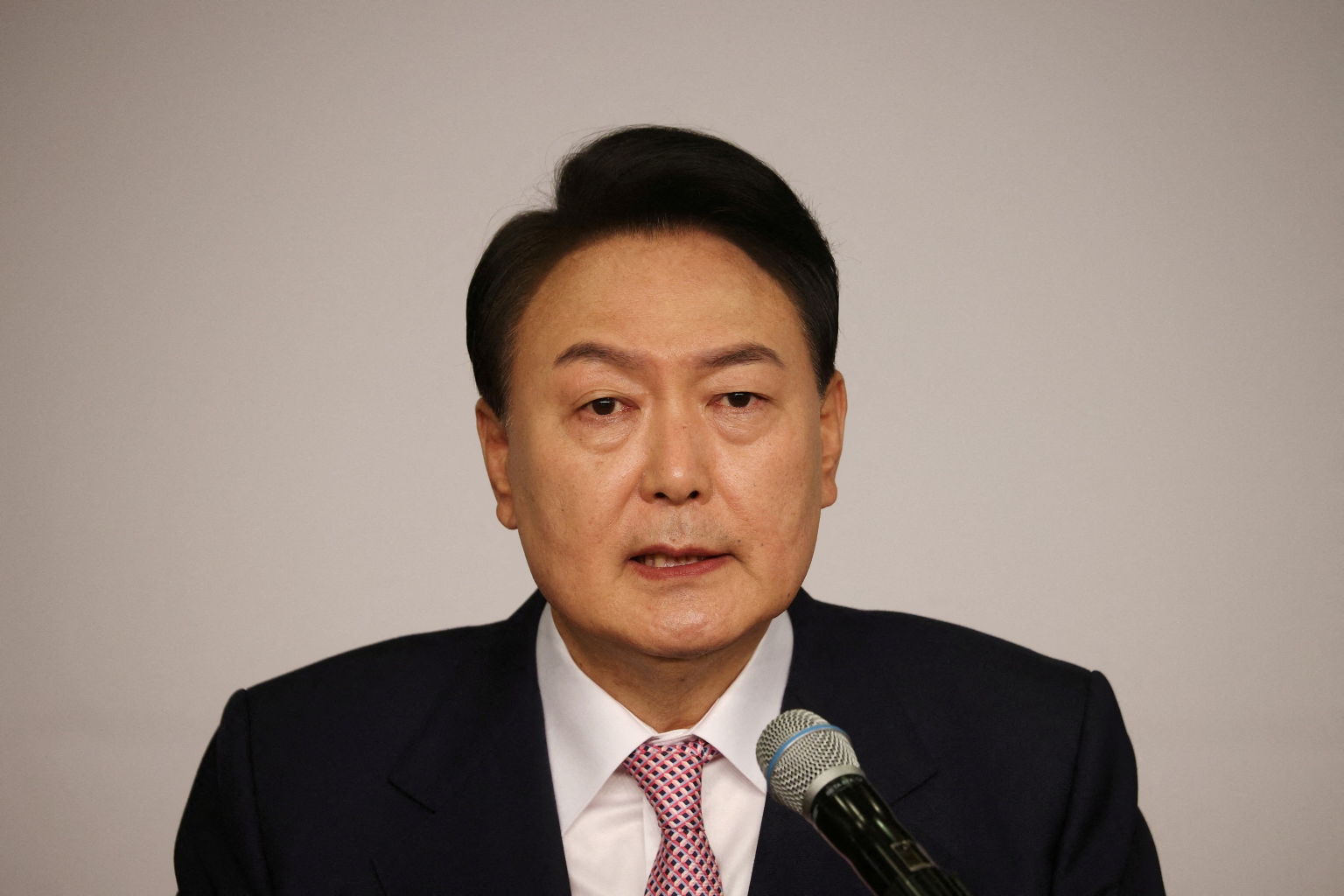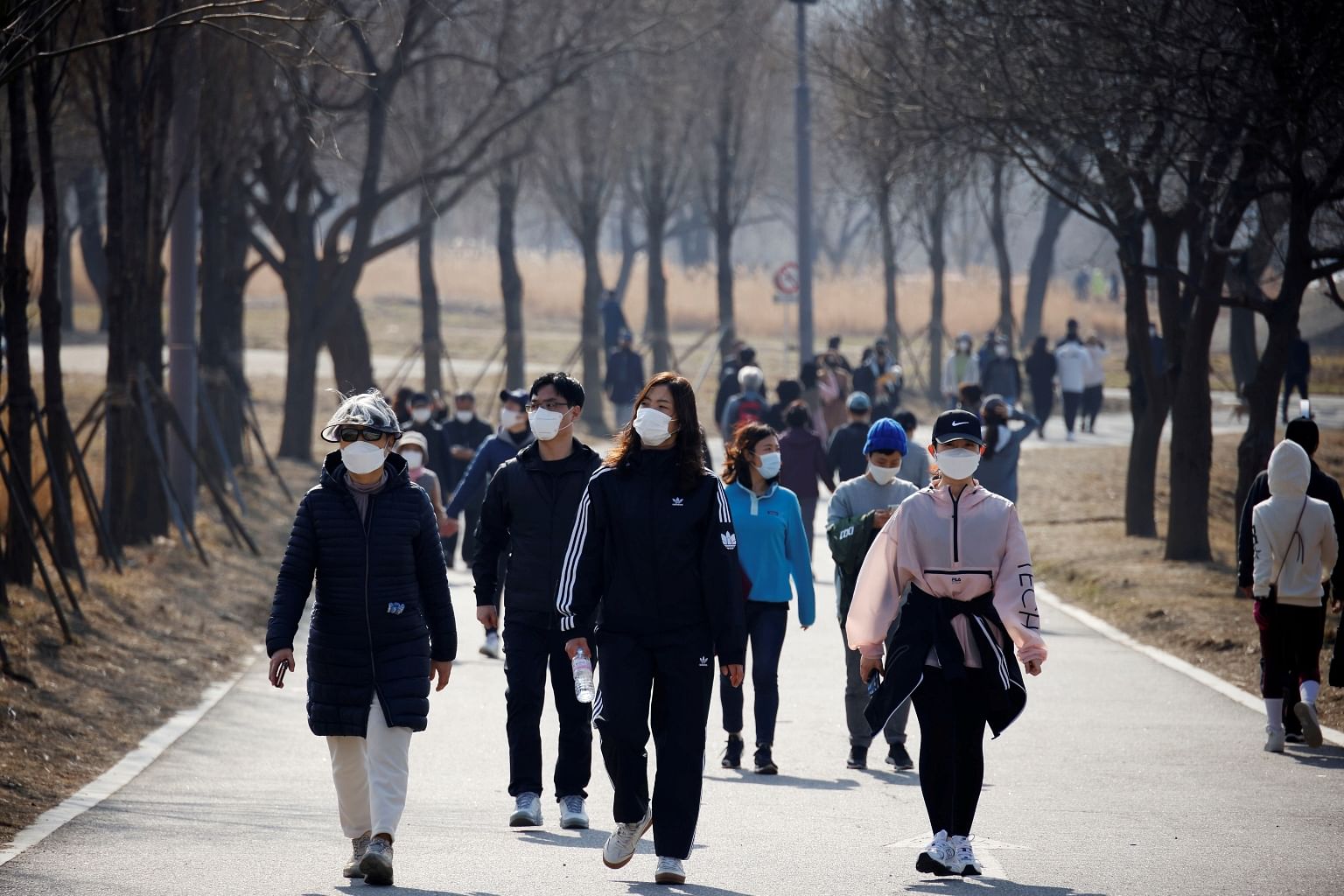'Anti-feminist' strategy may backfire on next South Korea leader Yoon Suk-yeol
Sign up now: Get ST's newsletters delivered to your inbox

Mr Yoon Suk-yeol pledged to shut down the 21-year-old Ministry of Gender Equality and Family.
PHOTO: REUTERS
Follow topic:
SEOUL (BLOOMBERG) - Mr Yoon Suk-yeol's victory in South Korea's presidential election last week may have come at the cost of animating a once-overlooked voting bloc that's aligned against him: Young women.
The conservative president-elect's effort to court "anti-feminist" voters, by vowing among other things to abolish the Gender Ministry, spurred young women to break heavily for his progressive opponent Lee Jae-myung.
Some 58 per cent of woman younger than 30 voted for Mr Lee, compared with 33.8 per cent who backed Mr Yoon, according to an exit poll conducted by the country's three major broadcasters.
While Mr Yoon ultimately edged out Mr Lee in South Korea's closest-ever presidential election, the "gender split" strategy left the electorate more sharply divided along gender lines.
He may have also succeeded in mobilising an increasingly vocal political demographic against him ahead of 2024 parliamentary elections that he'll need to implement his agenda.
Some 80 per cent of the 11,000 voters who joined Mr Lee's Democratic Party in the two days after the election were women, the party said on Friday (March 11).
More than half of those women were younger than 40.
"This election served as a good opportunity to demonstrate how the voices of women in their 20s and 30s are no longer to be ignored in politics," said Ms Kim Jeong-ha, a government worker in Seoul who just turned 30. "The change of presidency will only deepen existing gender conflict."
Politics in Asia's fourth-largest economy have been riven by intense debates over gender inequality for much of the five-year term of outgoing President Moon Jae-in, a self-described "feminist president".
Besides complaints of rampant sexual harassment and online bullying, female South Korean workers also bring home about two-thirds the wages of their male counterparts, the biggest gender pay gap among developed economies. That's fuelled a counter movement, especially among younger men, who argue that policies meant to close the gender divide are reverse discrimination.
Such grievances have often centred on complaints about South Korea's mandatory military service for men, which they say leaves them 18 months behind their female peers at work and school.
"Women in their 20s have benefited enough from the five-year tenure of Moon Jae-in," said Mr Park Jun-young, a 27-year-old graduate student, who said he was hopeful that Mr Yoon would roll back some policies that favour young women.

The "glass ceiling may still exist for women, but Mr Moon at least provided a sturdy 'glass floor'," he said.
Mr Yoon played to such sentiment, pledging to shut down the 21-year-old Ministry of Gender Equality and Family. He also offered to triple the monthly pay for enlisted soldiers to as much as two million won (S$2,200).
Mr Yoon, a former chief prosecutor and newcomer to electoral politics, has rejected accusations that he used such divisions for political gain. "I have never stoked the gender divide," he told reporters on Thursday.
More than 56 per cent of women in their 20s believe that the "government is not interested in opinions of people like me," said Dr Jeong Han-wool, a senior fellow at Hankook Research Company, citing recent surveys.
At the same time, more women under 30 are putting jobs first, saying they want to keep working regardless of household obligations that have traditionally made it harder for their mothers to stay in the workforce, Dr Jeong said.
Yoon might have overlooked the limitations women still face while focusing on slogans such as "justice" and "equal opportunity," said Dr Koo Jeong-woo, professor of sociology at Sungkyunkwan University in Seoul.
As women's social and political influence grows, politicians will need to try harder to woo their votes, shifting away from "empty rhetoric" that panders to male supporters, Dr Koo said.
Dr Chae Jin-won, a professor of public governance at Kyung Hee University in Seoul, said the gender disparities have become a bigger issue for younger people, overtaking even more universal economic issues such of affordable housing and wage growth.
"Yoon's strategy ended up a zero-sum or even a negative-sum game as while the men in their 20s helped lift Yoon to victory, the party lost female voters," Dr Chae said. "It's still not late for him to retract some of his pledges like abolishing the Gender Equality Ministry."

